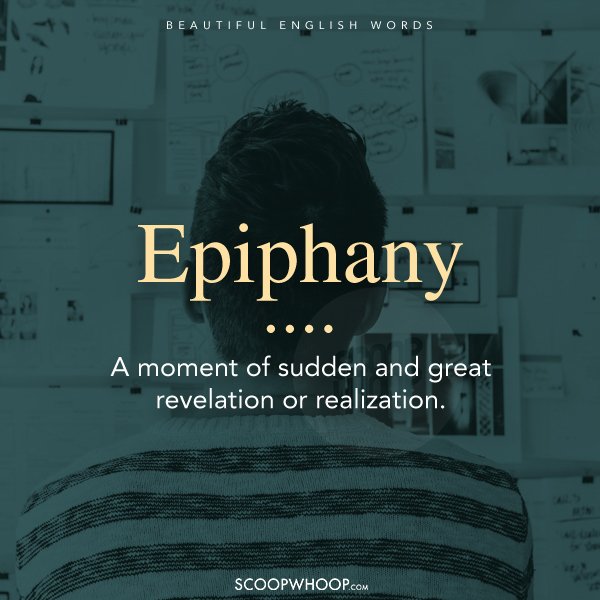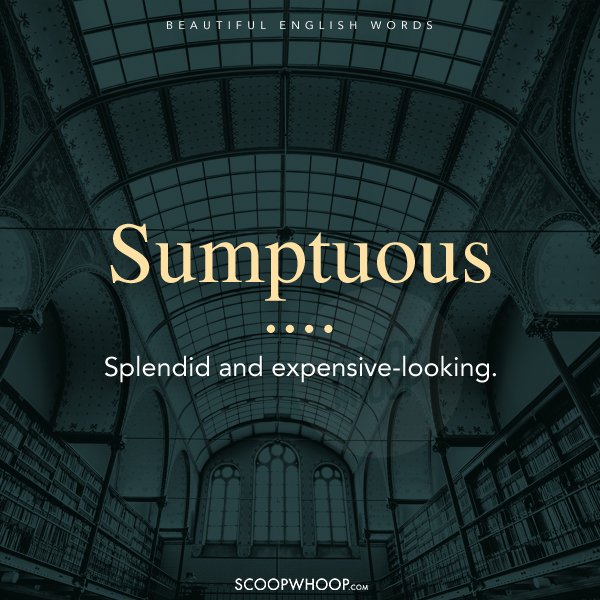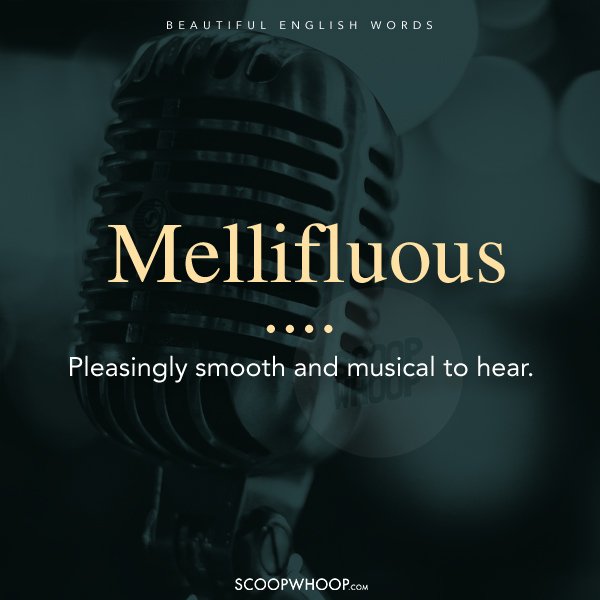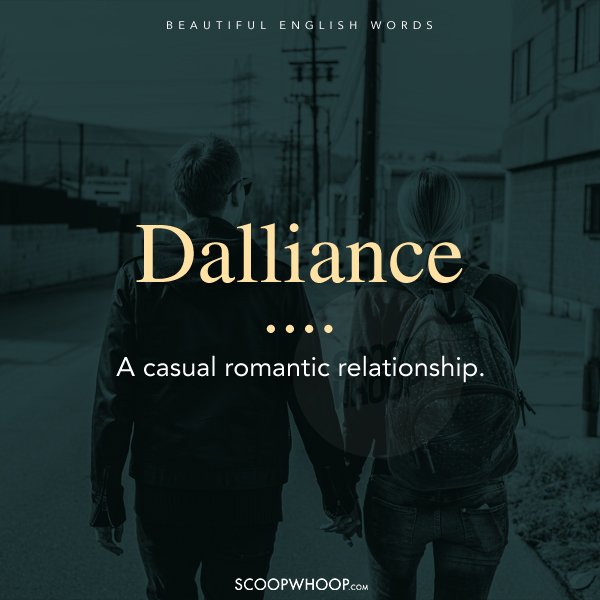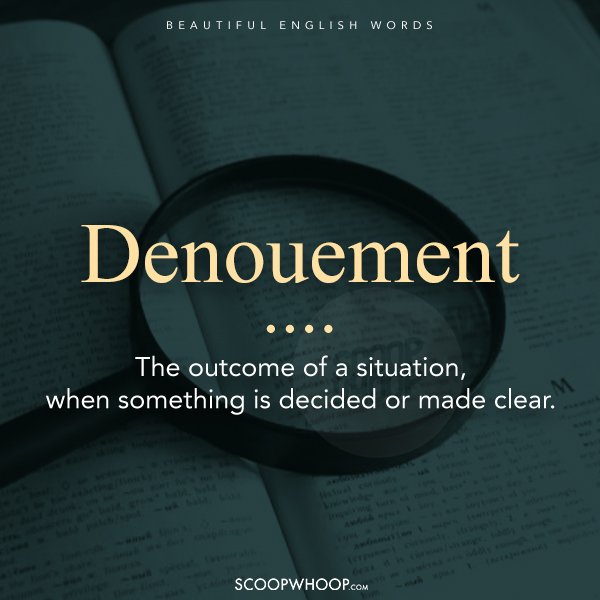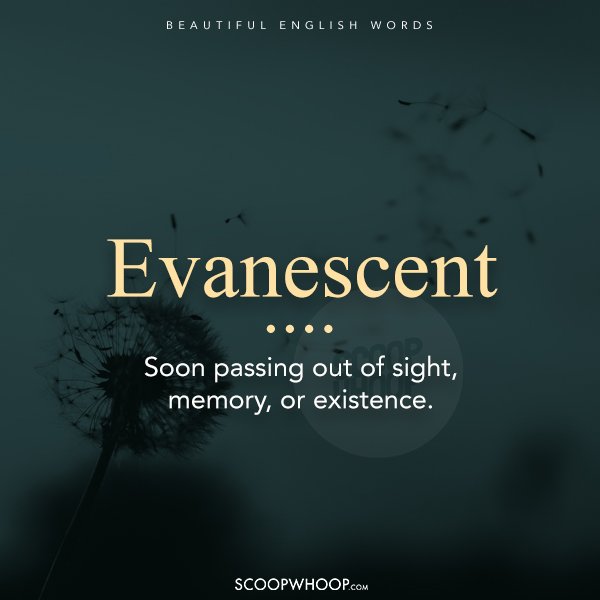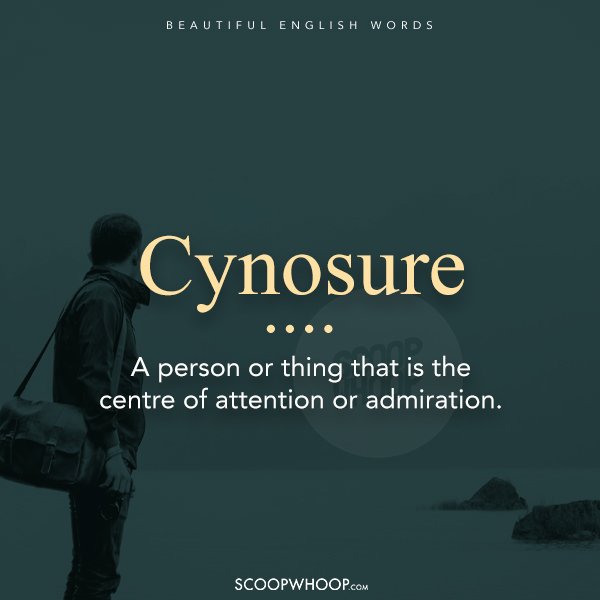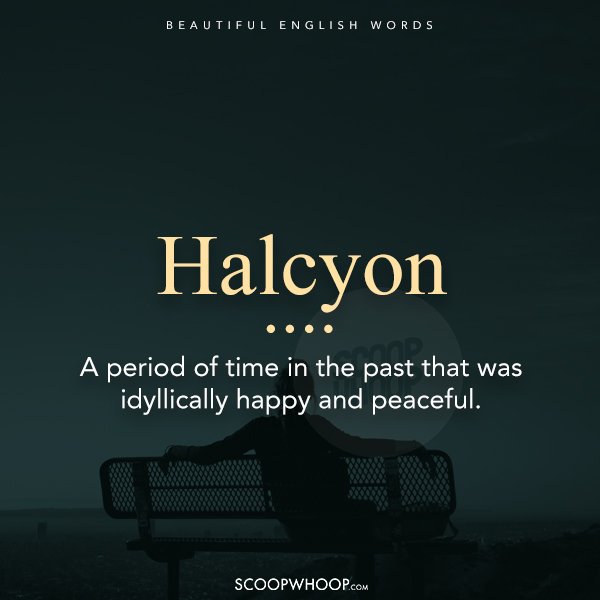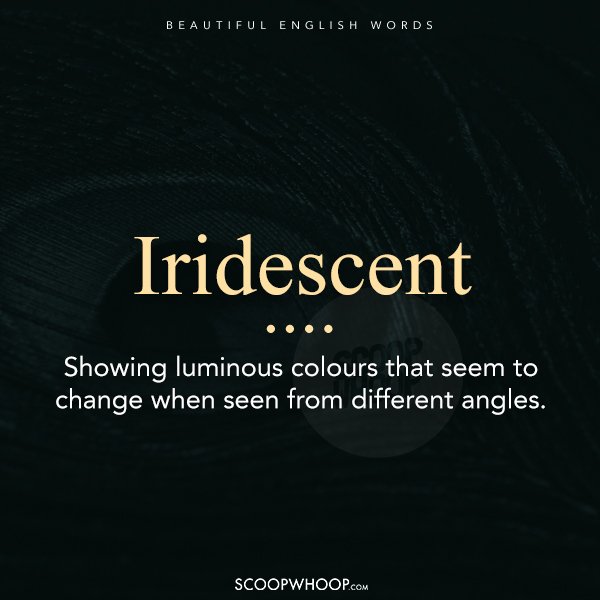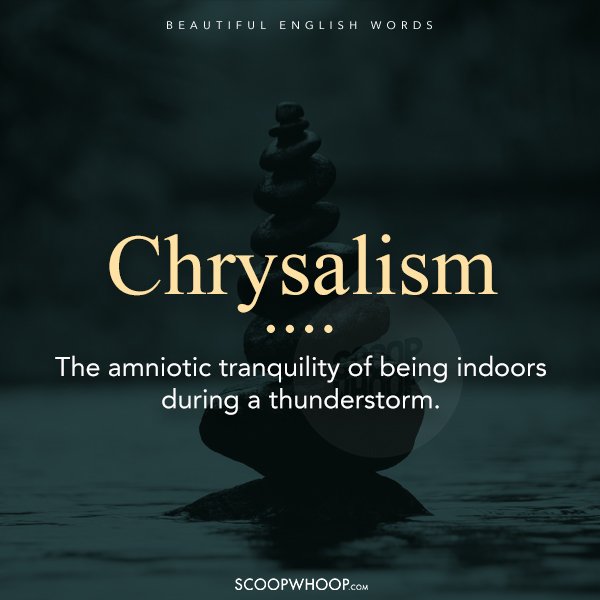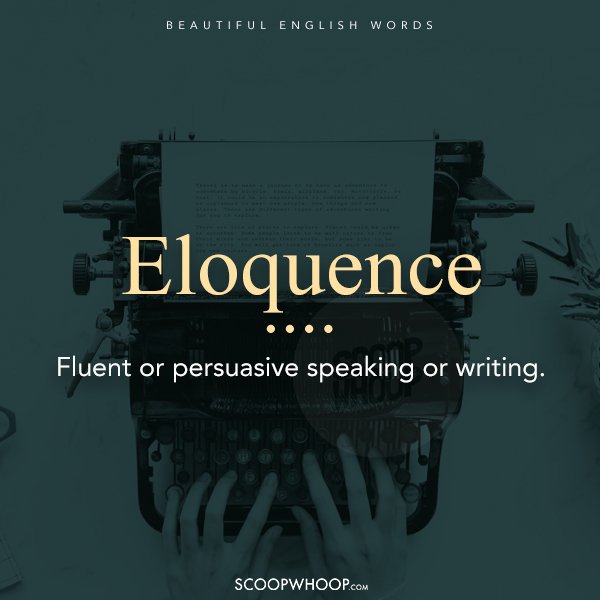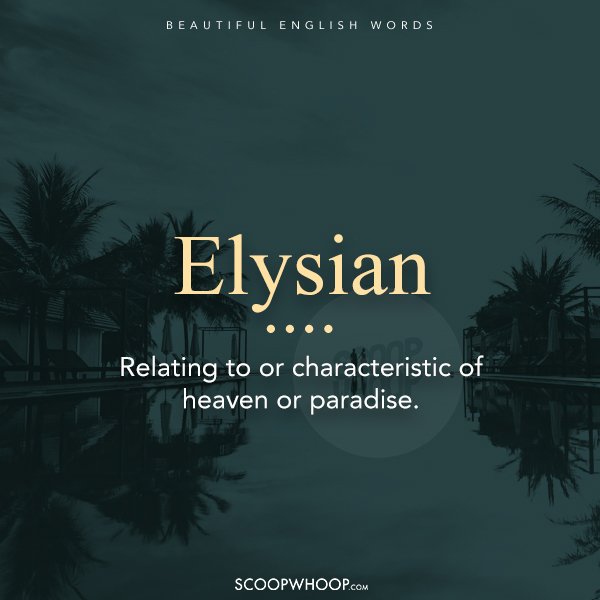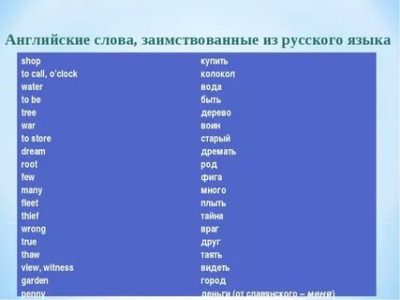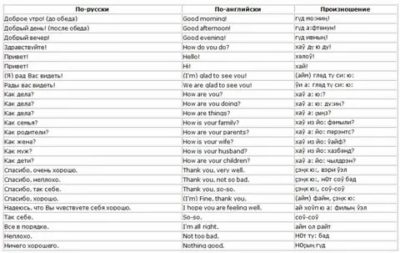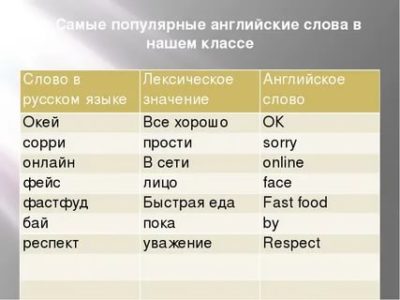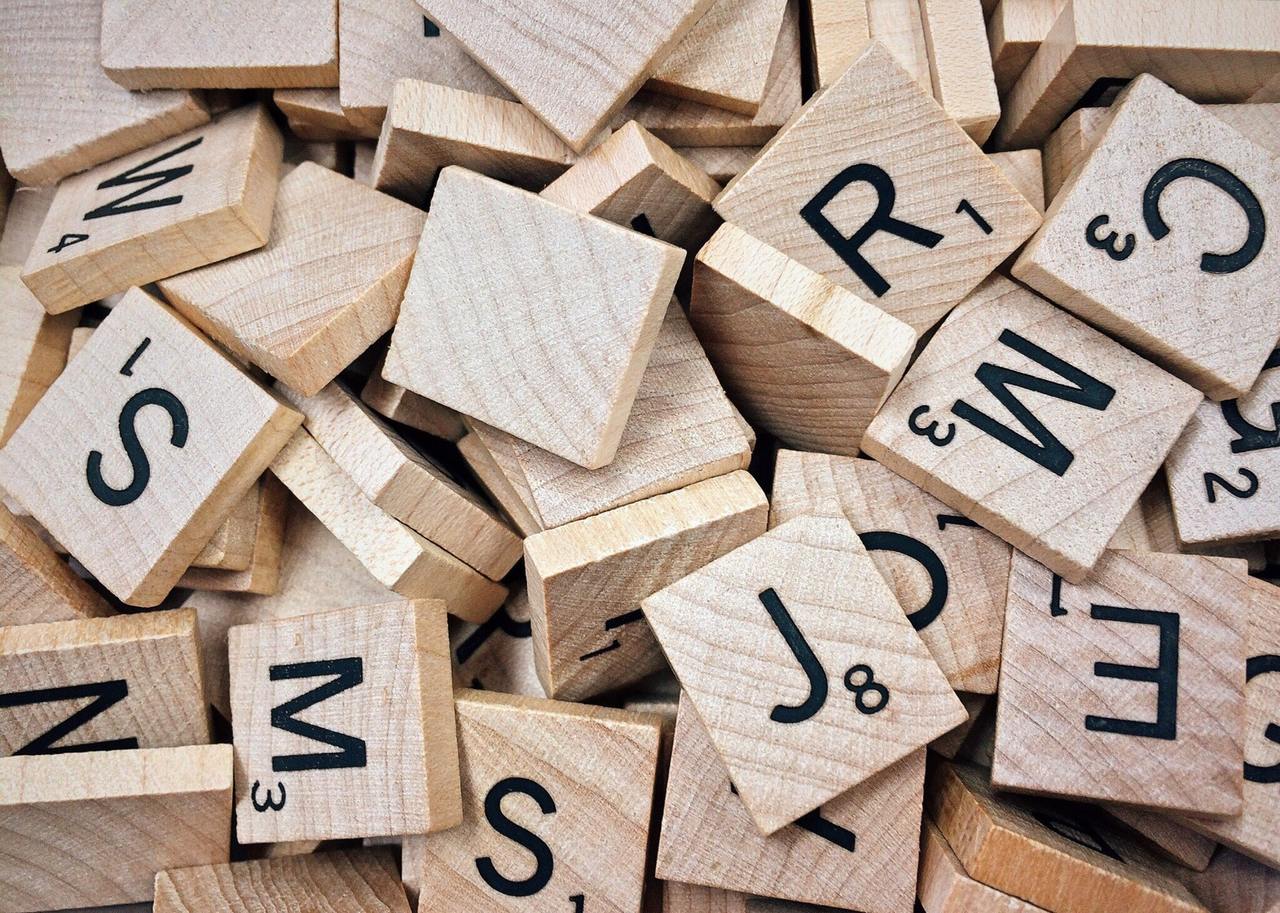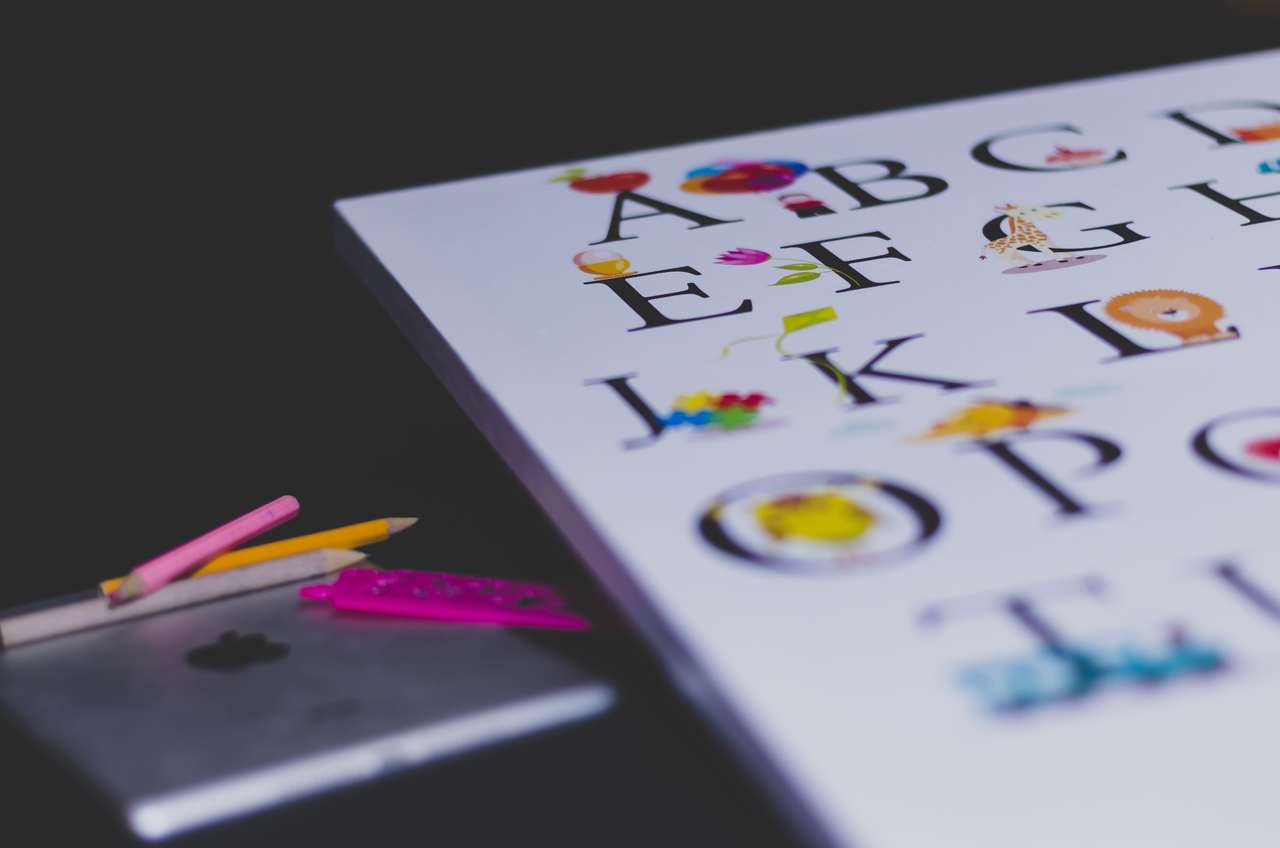Competitions and Composition
Not only are aurora borealis beautiful, but the sound of the words themselves is mesmerizing.
www.tonnaja.com/Moment/Getty Images
Updated on February 19, 2019
What do you think is the most beautiful-sounding word in English? Consider these unpredictable choices by well-known writers, and then encourage your students to write about their favorite words.
In a «Beautiful Words» contest held in 1911 by the Public Speaking Club of America, several submissions were deemed «insufficiently beautiful,» among them grace, truth, and justice.
In the judgment of Grenville Kleiser, then a popular author of books on oratory, «The harshness of the g in grace and the j in justice disqualified them, and truth was turned down because of its metallic sound» (Journal of Education, Feb 1911). Among the acceptable entries were melody, virtue, harmony, and hope.
Over the years there have been countless playful surveys of the most beautiful-sounding words in English. Perennial favorites include lullaby, gossamer, murmuring, luminous, Aurora Borealis, and velvet. But not all recommendations have been so predictable—or so obviously euphonious.
- When the New York Herald Tribune asked poet Dorothy Parker for her list of beautiful words, she replied, «To me, the most beautiful word in the English language is cellar-door. Isn’t it wonderful? The ones I like, though, are check and enclosed.»
- James Joyce, author of Ulysses, chose cuspidor as the single most beautiful word in English.
- In the second volume of the Book of Lists, philologist Willard R. Espy identified gonorrhea as one of the ten most beautiful words.
- Poet Carl Sandburg chose Monongahela.
- Another poet, Rosanne Coggeshall, selected sycamore.
- Ilan Stavans, a Mexican-American essayist and lexicographer, dismissed the «clichés» on a British Council survey of beautiful words (which included mother, passion, and smile) and instead nominated moon, wolverine, anaphora, and precocious.
- The favorite word of British author Tobias Hill is dog. Though he acknowledges that «canine is a beautiful word, fit for a medieval greyhound in a tapestry,» he prefers «the spareness of the Anglo-Saxon in England.»
- Novelist Henry James said that for him the most beautiful words in English were summer afternoon.
- When British essayist Max Beerbohm found out that gondola had been chosen as one of the most beautiful words, he replied that scrofula sounded the same to him.
Of course, like other beauty contests, these verbal competitions are shallow and absurd. Yet consciously or not, don’t most of us favor certain words for their sound as well as their sense?
A Composition Assignment
In her book Poet’s Pen, Betty Bonham Lies turned the beautiful-words list into a composition assignment for student writers:
Assignment: Bring in to class two lists of words: the ten most beautiful words in the English language and the ten ugliest — by sound only. Try to blot out what the words mean, and listen only to how they sound.
In class: Have the students write their words on two blackboards or sheets of newsprint: the beautiful words on one, the ugly on the other. Put in some of your own favorites of both kinds. Then talk about what elements in the words seem to make them either attractive or unattractive. Why is pandemonium so euphonious when its meaning is «a wild uproar»? Why does crepuscular sound unpleasant when twilight is lovely? Discuss disagreement among students; one’s beautiful word might be another’s ugly. …
Ask students to write a poem or a prose paragraph using at least five of the beautiful or ugly words. Tell them not to think about form. They might write a narrative, a vignette, a description, a list of metaphors or similes, or total nonsense. Then have them share what they have written.
( The Poet’s Pen: Writing Poetry With Middle and High School Students. Libraries Unlimited, 1993)
Now if you’re in a sharing mood, why not pass along your nominations for the most beautiful words in English?
level 2
Omg that was going to be mine too!!!!
level 1
Association. I don’t know why.
level 1
Tumbleweed or platypus, can’t decide.
level 1
umbrella ella ella eh eh.
level 1
Not a word but the phrase: Clean as a whistle just makes me happy
level 1
Eloquent is the most eloquent.
level 1
salacious… the word just sounds so damn filthy XD
hippopotamus is a close runner up though :p
level 1
Gone. I just like the word, it gives me confidence, got sort of a nice, woody quality to it. Not like those awful tinny words, like newspaper or litterbin.
level 1
Discombobulated.
It’s like you’re mouth is riding down a bumpy road that makes you feel discombobulated.
level 1
Asphyxiation. Terrible meaning but it sounds cool
The most stunning feature about English is that it is born from a confluence of a number of cultures from across the world. Every single word holds more than just what it intends to denote. It holds within it a history of its evolution.
And while this isn’t a definitive list of the most beautiful words from the inexhaustible word bank, they do however hint at just how alluring the English language is.
ADVERTISEMENT
ADVERTISEMENT
ADVERTISEMENT
ADVERTISEMENT
Which English word qualifies as beautiful for you?
Would you like this sound words list as a free PDF poster with pictures? Click here to get it.
We hear different sounds all the time. But how do we actually say them as words?
There are many different words for sounds. Let’s look at 42 sound words in English (plus some useful idioms with sound words).
Remember English Prepositions Forever!
Download free!
1. Sounds of things hitting things
Thud
The sound of something heavy falling and hitting the ground.
I don’t know why she’s dropping a brick from a high chair.
But it does make a fun sound.
Whack
The sound of a short, heavy hit.
This can also be used as a verb:
“She whacked him in the head with the pillow.”
Slap
The sound of someone hitting something (or someone) with an open hand.
You’ll hear this word a lot in idioms:
A slap in the face is used when someone has done something bad to you (given you something you don’t want or not given you something that you do want, for example), usually unfairly.
“I did all of the work for the project and then Sam gets the promotion — not fair. What a slap in the face!”
A slap on the wrist is when someone gets punished — but very, very lightly. Much less than they deserve:
“You heard about Hexon Oil? They polluted every lake in the country and only got a $2000 fine. It was barely a slap on the wrist, really.”
A slap-up meal is basically a massive meal — the kind of meal you have when you really don’t want to think about your weight or your health. Just enjoy it!
“I’ve sold the house! I’m taking you all out for a slap-up meal at Mrs Miggins’ pie shop!”
A slapdash job or slapdash work is work done really badly. I remember waiting in a cafe at Sofia airport, and these Austrian guys found it quite funny that there was just one plug socket in the whole cafe. And it was halfway up the wall. The designer definitely did a slapdash job:
“Don’t get that builder. He did such a slapdash job on our house that the roof fell in.”
Knock
OK, so “knock” is the sound that you make when you arrive at your friend’s house and hit their door with your hand.
There’s also the phrase “don’t knock it.”
It basically means “don’t criticise it.”
“Banana and crisp sandwiches are actually really good! Don’t knock it till you’ve tried it!”
Rattle
Stay away! It’s a rattlesnake. And it’s rattling its tail.
As a verb, “rattle” can also mean “disturb.”
Think about classic action heroes.
They can fall out of planes, jump off the edges of mountains, survive car crashes, helicopter crashes and bike crashes; they can be forced to swim underwater for five minutes and then run 200 metres over burning coals.
And after that, they’re just fine, right?
That’s because nothing rattles them. Nothing!
Splat
The sound of something wet hitting something else.
Like when you throw eggs or rotten tomatoes at the visiting politician.
Or a water balloon at your friend.
Clunk
This is one of those words that sounds like it sounds, if you know what I mean.
It’s a heavy, dull sound.
Clang
A noisy, metallic sound.
Clink
This is like clang’s baby brother.
It’s a small, sharp sound — usually made when metal or glass touches something.
Patter
A light tapping sound.
We usually use it to describe rain:
“I love sleeping through storms, don’t you! The patter of rain on the roof and knowing you’re safe and sound in bed.”
When I was a kid (and for too long afterwards — she still does this when I visit) my mother would greet me when I came downstairs in the morning with:
“You’re awake! I thought I heard the patter of tiny feet!”
“Mum — I’m 37 years old.”
Clatter
Clang is noisy and unpleasant, right?
Now imagine lots of clangs. That’s clatter.
Smash
The sound of something breaking into a million pieces. Usually violently.
“Smashing” can also mean “excellent”:
“She did such a smashing job that we hired her full time.”
Slam
We usually use this to describe closing a door very loudly.
But we can use it for other similar situations.
You can slam the phone down (if you’re using a non-mobile phone, like the retro kid you are).
You can also slam a glass on the table. (Think tequila shots.)
If someone slams the door in your face, they basically decide not to help you or give you information that you need.
“I called the helpline about it, but they refused to help. Completely slammed the door in my face.”
You can also just “slam” something. It means “give a very, very negative review.”
“The New York Times completely slammed his new book. But I thought it was pretty good.”
2. Mechanical sounds
Honk
When I lived in Istanbul, I would play a game.
I would try to count to five without hearing a single car honk its horn.
I never got past three seconds.
Also — it was a terrible game. But I was bored.
Whir
A continuous sound — usually quiet, often calming.
Tick
We almost always think of clocks and watches when we hear the word “tick.”
It’s that tiny, short sound.
So it wouldn’t surprise you to hear that we can use the phrase “time is ticking” to mean “hurry up!”
“Let’s get started! Time’s ticking.”
If you’re a bit angry (not furious — just a bit), then you can say that you’re “ticked off.”
“To be honest, I’m a bit ticked off. I didn’t expect you to tell everyone about what I told you. It was private.”
“In a tick” can also mean “in a minute,” “in a second,” “in a moment” or just “soon.”
“Take a seat. I’ll be with you in a tick.”
Click
A small, sharp sound.
Think about a light switch.
Or this annoying guy and his annoying pen.
When you click with someone, you immediately get on well. You start talking and it feels as if you’ve always been friends.
“I’ve been friends with Gudrun for 20 years. We clicked as soon as we met.”
Bang
A loud noise! Usually sudden.
This is most closely associated with guns. But the building site next to my house also produces a lot of bangs.
If you go out with a bang, you finish or leave something in a super-dramatic way.
“Wow! His last day of work and he throws coffee in the boss’s face! Talk about going out with a bang!”
When someone bangs on about something, they talk for ages about it while successfully boring the life out of whoever has the bad luck to listen to them.
“If you could just stop banging on about your new computer for a minute, I’d like to talk to you about what happened last weekend.”
Buzz
The sound of something vibrating.
When we talk about the buzz of a place, we’re talking about that special energy it has.
Some cities (like Vienna) have a real buzz, while some cities (like Swindon) don’t.
“What I miss about Istanbul most is the buzz. And the food. But mostly the buzz.”
You can also buzz someone in when you’re at home, and someone wants to get into the building. It saves you from having to walk all the way downstairs to let them in.
“Hey! I’m outside your flat now. Can you buzz me in?”
Finally, you can give someone a buzz. It just means “give them a quick call.”
“Let’s have that drink on Friday. Just give me a buzz, and I’ll let you know where I am.”
3. Electronic sounds
Ping
This is the sound of a very small bell.
Think of a typewriter or a hotel reception desk.
Blip
A ping will last for a long time (piiiinnnggggg). But a blip is very, very short.
Think of a radar in those films with too many submarines in.
Beep
A blip sounds quite nice, but a beep can get very annoying very quickly.
I don’t know how people working as supermarket cashiers don’t go crazy. Do they still hear the beeps when they go to sleep at night?
4. Organic sounds
Snap
A sudden breaking sound — think of the sound of wood breaking.
I guess because it’s quite an unpredictable sound, we can also use “snap” as a verb to mean “suddenly get angry.” When you snap, it’s probably a result of lots of things building up.
“It was when her kid put his school tie in the toaster that she finally snapped.”
It also has a second meaning.
Have you ever tried to talk to someone, and instead of saying “Hi!” or “Good to see you!” or “Nice hair,” they just angrily shout at you — completely unpredictable and sudden?
Then they snapped at you.
“I wouldn’t talk to him right now, if I were you. I just asked him if he was OK, and he snapped at me.”
You can also just say “snap” when someone else has something that you have. It could be a plan, an interest, or something physical, like a T-shirt.
“No way! Snap! I’ve got the exact same phone.”
Finally, there’s a snap election.
It’s a general election that the prime minister or president suddenly announces — usually because they think they’ll win. All of a sudden, we’re voting. Again!
“She said she wouldn’t call a snap election. Then she did.”
Crack
It’s like a loud snap.
If you want to celebrate, you can do so in style — by cracking open a bottle of champagne:
“You got the job?! Awesome — let’s crack open a bottle, yeah?”
If you drink too much of it, you might find EVERYTHING funny and just crack up all the time. It means suddenly start laughing. A lot. Until your face hurts.
“I told him my idea, and he just cracked up. I didn’t think it was that funny.”
Crackle
Lots of small cracks.
Fire and fireworks crackle. And not much else.
Pop
A tiny, little, mini explosion sound.
Because it’s such a short sound, we use it in phrasal verbs to describe something quick.
You can pop out (go outside — but only for a bit):
“I’m just popping out for some fresh air. See you in a few minutes.”
Or you can pop in somewhere (visit — but only for a bit):
“When you’re in town, why not pop in for a coffee?”
Sizzle
The sound of food cooking.
Rustle
There are basically only two things that rustle.
Leaves (especially dry, autumn leaves) and paper.
To rustle something up means to make a quick meal — like a sandwich or some toast.
“You haven’t eaten? Give me two minutes — I’ll rustle something up.”
Rumble
A continuous, deep sound.
Think of thunder.
Or your stomach when you’re really hungry.
5. Water sounds
Fizz
That nice sound of bubbles popping. Think about sparkling water or champagne.
Squelch
You just need to say this word to understand what it means.
Go on, say it. Feels good, doesn’t it?
It’s basically the sound of walking in mud.
Gurgle
This is the sound of bubbles being created.
Imagine lying down in the green grass next to a beautiful stream.
What can you hear?
The gurgle of the stream of course.
And the lion. Look out for the lion.
Glug
If gurgle is a series of sounds, then glug is a single one of those sounds.
Think of how you sound when you’re drinking water quickly.
Drip
“Drip” looks like “drop,” right?
Well, “drip” is the sound that a drop makes when it hits something.
Splash
The sound of something hitting water (or any liquid).
Think of the sound of kids in the bath.
Or the sound at the end of a water slide.
If you feel like spending a little more money than you should, then you splash out.
“Yeah, it’s a bit pricey. But it’s my birthday. I’m gonna splash out.”
Trickle
This is the sound of liquid flowing very slowly.
Squeal
Don’t step on the rat’s tail. He’ll squeal really loudly.
Also, it’s not nice. Leave the rat alone, you monster.
Squeak
A squeak is a small, high-pitched sound.
Think of the sound of a mouse.
Or an old bed.
Or a door that needs oil.
I once had a pair of shoes that squeaked a lot.
You can also use the phrase “a squeak out of someone” to describe any sound coming out of their mouth at all. It’s usually used in the negative.
“Right. He’s coming. I don’t want to hear a squeak out of either of you until he’s gone. I’ll do the talking.”
Hiss
OK. Repeat after me:
“Ssssssssssssssssssssssssssssssssssss.”
Good — you’ve just made a hiss.
Swish
This is another word that sounds like it sounds. (These words are called onomatopoeia, by the way.)
It’s a bit like a mixture between a hiss and a rustle.
Creak
When you open that old, heavy wooden door.
Or decide to take your kids to a playground that was built in the ‘50s.
Then expect to hear a lot of loud, high-pitched sounds of wood and metal rubbing together.
A lot of creaks.
Scrape
The sound of something hard or sharp rubbing against something else.
We use this a lot as a verb.
You might have to scrape ice off your car on winter mornings.
Or scrape the pancake off the pan after you’ve burned it.
Or scrape chewing gum off the table. Seriously, why do people do that?
There’s also the idiom “to scrape the bottom of the barrel.”
We use it when we’ve almost completely run out of options, and all we have are the worst choices.
“Is this the best we can do? We’re really scraping the bottom of the barrel here. I mean some of them don’t even have faces.”
Congratulations! You now know 42 sound words in English (plus some new idioms).
So let’s practice:
- Have you splashed out on something recently (like a slap-up meal or clothes)?
- What ticks you off the most?
- Can you remember cracking up over something that wasn’t funny? What was it?
Answer in the comments!
Did you like this post? Then be awesome and share by clicking the blue button below.
«Mom, I’m bizi, I’ll call you back later»: what is runglish and who speaks it
“He’s a great person. Its designs can be worn by people of any age, any shape, size, height. He’s timeless. I have things, yet, I remember, the first suit when I was 18 years old, my job interview suit; I still have it. It’s just just fun to remember, ”- this is how Zoya Vekselshtein, director of a clothing store in Canada, commented on the work of the Chinese-Canadian fashion designer Simon Chang to the Russian-language TV channel.
Vekselshtein clearly cannot speak only one language and easily mixes Russian with English. Many Russian-speaking people living in the USA, Canada, Great Britain and other English-speaking countries face this phenomenon every day. This strange language has already been called «Runglish» — that is, a mixture of Russian and English. People speak it without even realizing how funny they sound.
In general, emigrants in different countries often mix their native language with the local one. The result is an amazing hybrid dialect that sounds odd and confusing to the uninitiated.
“A friend of mine, at the age of 15, went to study in the UK and returned a year later as a completely different person,” says media consultant Victoria, who moved from Russia to New York. «Sometimes you could hear from her something like: ‘I need a brush for my hair’, which is grammatically incorrect in Russian, not to mention the English word ‘comb’ in the middle.»
A few years later, Victoria ended up studying in the UK and, ironically, faced the same problem.
“I started using English to communicate with other Russian-speaking students, because some concepts in marketing, finance or media are easier to explain using English words,” says Victoria. “I use both languages all the time, and it is terribly difficult for me to quickly switch from one to the other. When I talk to friends, I prefer to relax and say the first thing that comes to my mind. «
How did runglish
Runglish appeared in the United States in the 1970s, when the first wave of mass Russian-speaking emigration since the Second World War began. The southern part of Brooklyn, especially Brighton Beach, has become the epicenter of the Russian-English confusion in the United States.
“All my life I’ve heard all sorts of variations of runglish, or Russlish,” says Alexander, a former software developer. He lives in Brooklyn and his family moved to the United States in the 1970s. «As someone who knows both languages, I love this play on words and the mixture of Russian and English in one sentence.»
How to speak Russian
Instead of saying «I’m driving,» a Russian in Brooklyn might say «I’m driving.»
“I first heard Runglish when I moved to Brooklyn. The inhabitants of this “little Odessa” created their own language using Russian with a strong Odessa accent and English words. In Brighton, Runglish is considered cool, ”says Katya, a Columbia University student who was born in Kazakhstan and has lived in New York for almost seven years.
“Later, however, I was told that only people with little education speak both languages at once. In Manhattan, immigrants are expected to have a good knowledge of the language and the ability to express themselves competently, both orally and in writing. Now I hear less and less of Russians living here mixing languages, ”she says.
“Once I said to my friend:“ share your lacunae with me [share your location], ”and only then I realized how awful it sounded,” Katya admitted. One day her mother called her from Kazakhstan, and Katya puzzled her very much, answering: «Mom, I’ll call you back.»
Russian parents and their English-speaking children
“I don’t mix Russian and English, I immediately switch from one to the other if the topic or circumstance requires it,” says Ignat Solzhenitsyn, the son of the famous writer Alexander Solzhenitsyn.
Ignat was born in Russia, but grew up in Vermont, and now lives in New York. Eminent parents tried in every possible way to make Ignat speak and write well in Russian.
But this is rather atypical — it takes a lot of time and effort to teach a child Russian outside Russia. And now more and more Russian-speaking parents in the United States speak English with their children, and they only partially understand Russian.
In addition, there are times when the English word conveys a thought better, while the Russian is simply out of place. “For example, when it comes to walking around Brighton Beach, it makes sense to say ‘boardwalk’, and not the more familiar to Russians ‘promenade’. Otherwise it will sound as if you are in a Chekhov play, ”says programmer Alexander.
On the other hand, Alexander believes that when there are wonderful Russian equivalents, the use of English words hurts the ear — for example, if they say «tran» instead of «train».
This applies not only to Russian and English
Civil engineer Lev Mezhburd moved to New York from St. Petersburg in 1989 and has been researching the phenomenon of language mixing for 30 years. Mezhburd notes that many Brighton Beach residents are not ethnic Russians, many come from other Soviet republics: Belarus, Ukraine, Moldova, Georgia, Uzbekistan and others.
“The use of words from different languages in one sentence is common for them, because many grew up in multinational Soviet communities where they spoke several languages,” Mezhburd says. «These people had never spoken correct Russian before, and when they arrived in the United States, they brought their own version of Russian with them, and in addition to that they began to be just as flexible in their approach to learning English.»
He also recalls that elements of «Runglish» were common in the slang of progressive Soviet youth in the 1970s and 80s: the words «gerla» (girl) or «flat» (apartment) could often be heard.
How to determine runglish
What is Runglish really: a dialect or a full-fledged new language?
“For Runglish to become an independent language, it must contain original words, as well as phrases or grammatical constructions that are used only in Russian-English conversation, so far I can’t give an example of anything like that,” says Alexander.
However, the prevalence of mixed Russian with English, especially in Brooklyn, is not decreasing. In recent years, more and more emigrants from Central Asia and Ukraine have come to New York, and therefore this hybrid Russian-English language is likely to remain a common means of communication among representatives of different nationalities from all over the former Soviet Union.
Source: https://ru.rbth.com/read/417-runglish-russians-brighton-beach
Russian mistakes in English: pronunciation of consonants — OTUK
Some problems can arise with the use of other consonants, for example, [h] and [dʒ]. Read more about the difficulties with the pronunciation of consonants in this article.
In the English alphabet, there are 21 consonant letters, while the number of consonant sounds is 24. The fact is that some sounds are formed as a result of using a certain sequence of letters. So, the sound [ŋ] appears, as a rule, in words where there is a combination of ng (sing, wing).
How do consonants come about?
Since school times, we know that consonants are formed with the help of any «obstacles», in contrast to vowels, which are obtained as a result of voice work. The pronunciation of consonants involves various components of the articulatory apparatus. For example, to pronounce the Russian sound [p], you need to rest the tip of your tongue against the base of your upper teeth and create vibration. Lips, tongue, palate can participate in the articulation of consonants.
Russian mistakes in English pronunciation are due to the fact that the speech apparatus of Russian-speaking people from childhood adapts to produce sounds in a certain way, and when learning a foreign language, it hardly adjusts to new norms.
Russian mistakes: English consonants
Let’s look at specific examples of incorrect pronunciation:
- Interdental [θ] and [ð] cause the greatest difficulties, since they are completely not characteristic of the Russian phonetic system. Very often they are replaced by the Russian sounds [s] and [z], [f] and [v]. You’ve probably heard it in the words that, the, weather, thin, etc.
- Nosovoy [ŋ] also has no analogues in Russian and therefore is often replaced in speech by [n] or [g], for example, in the words wing, ring.
- Russian-speaking people do not always distinguish between the sounds [w] and [v] in their speech, which leads to confusion between west and vest, while and vile.
- According to the rules of Russian phonetics, consonants are voiced if they stand in front of vowels and in some other positions. Errors in English occur when Russian-speaking people pronounce voiced [b], [d], [g] as voiceless [p], [t], [k], for example, in the words pig, big, sad.
- Sounds similar to English [p], [k] and [t] in Russian sound without aspiration. Therefore, Russian speakers pronounce them incorrectly at the beginning of English words, which leads to misunderstandings. Often come is pronounced almost like gum, pit like bit.
- The sound [h] can be replaced by a rougher and more distinct [x], for example, in horror, home, etc.
- When playing the sounds [t], [d], [l], [n], Russians often touch their upper teeth with the tip of their tongue, trying to give their pronunciation an “English accent”. As a result, speech errors occur.
- Russian speakers tend to soften most English consonants before the vowel sounds [i:], [i], [e], [ei], [iə]. This can be seen in words like tea, where [t] starts to sound almost like [ts], deed, where [d] looks more like [dz], etc.
- In English speech, there are two sounds corresponding to the letter l: light l [l] (, leaf, black) and dark l [ɫ] (pool, milk, full). A typical Russian mistake is to pronounce both sounds the same as [l]. You can feel the difference in the sounding speech of the native speaker, however, for Russian-speaking students, the problem is also that most dictionaries and reference books also do not provide different characters for transcribing dark l.
- The sound [∫] is often harder pronounced, especially before vowels and at the end of words.
- The sound [t∫], in turn, is pronounced softer than it should sound in English. It is more reminiscent of the always soft Russian [h] (chase, check, etc.).
- In Russian phonetics there is no sound [dʒ], but there are separate [d] and [g]. The sound [dʒ] in Russian speech appears only in words borrowed from English and some other languages: jeans, John, etc. Pronunciation of this sound as two different ones, without the confusion inherent in them in English speech, becomes a mistake.
- The Russian analogue [j] is pronounced with much more noise, which leads to phonetic inaccuracies in words such as young, joy, etc.
- The letter r is often, especially at the beginning of learning English, pronounced as [r] at the end of the words doctor, enterpreneur, etc., which is a gross Russian mistake.
Consonant combinations
- Combinations [θ] + [s], [ð] + [z], [s] + [ð] cause difficulties even for advanced learners. Often these combinations are replaced by [ts] and [z] (clothes, months, sixth).
- Problems also appear when pronouncing [t], [d], [s], [z] before [j], as in the words situation, education, where Russians ignore the phenomenon of «addition» of neighboring sounds.
- When pronouncing a combination of two explosive sounds, such as [p], [b], [t], [d], [k], [g], Russians make a serious phonetic error in English speech. Many people utter the first sound with an explosion, while the second is lost a little (asked, lobbed).
- Russian-speaking people tend to insert a neutral [ə] between consonants in the combinations [tl], [dl], [tn], [dn]. For example, in the words little [‘lit əl], button, modern.
- Combinations of sounds at the beginning of words [tw], [tr], [pr], [dr], [br] also cause Russian mistakes in English. Russian-speaking people often pronounce them as two separate sounds, sometimes inserting [ə] between them, instead of producing a single sound. You can see this in words like tree, where the start [tr] should look like the start sound in chair, or in dry, here [dr] should sound like [dʒ], and so on.
Source: https://onlineteachersuk.com/ru/russkie-oshibki-v-anglijskom-proiznoshenie-soglasnih/
Pronunciation and transcription of English words: online translator
| Mike | American English | 20 words |
| Lela | American English | 10 words |
| Jeevin | American English | 3 words |
| Andrew | British English | 8 words |
Discount for unlimited access to the site — 70%!
Subscribe
Are you studying or teaching English?
We know that sometimes English seems difficult. We don’t want you to waste time.
Check out all of our tools and learn English faster!
Greetings from the creator of the site Timur:
Learn How to Activate Your Brain and Learn Faster (4 min.)
Your browser does not support HTML5 video!
Timur Baytukalov’s article “Learning a foreign language from scratch. Part 1. Mastering pronunciation «
Timur Baytukalov’s book «Rapid learning of a foreign language from English to Japanese»
Free Webinar «Learning English Pronunciation Like Polyglots» (27 min.)
English transcriptions will help you improve your pronunciation
Mastering pronunciation of english words can be challenging for many people starting to learn English.
As you should be aware, there are no strict reading rules in English — one and the same english letter (or a combination of letters) can be pronounced differently in different words.
What’s more, the same English word is often pronounced differently by native English speakers from different countries and even from the same country! Because of this pronunciation of English words and listening comprehension of spoken language can be difficult for many beginners to learn English.
With the help of this online translator you can get phonetic transcription of English wordswritten by symbols International Phonetic Alphabet (IPA).
This translator of words into transcription will save you time, because you don’t have to look up the pronunciation of English words in a dictionary. When used regularly alongside educational audio and video materials phonetic transcription will help you improve pronunciation and listening skills in English.
Homographs (words that are spelled the same but pronounced differently) will be highlighted in light green. If you hover your mouse over such a word or touch it on your mobile device, you will see all possible pronunciations. Often you can also see which part of speech a given word belongs to.
Variants of pronunciation (in cases where a word is pronounced differently by different native speakers or when pronunciation changes in rapid speech) are highlighted in light blue. You can also hover your mouse over a given word to see all possible options.
The translator supports both dialects of English and works on the basis of two dictionaries:
- Dictionary of Transcriptions of English Words (British English)compiled from various sources. Contains over 110 words. Homographs (over a thousand words) and pronunciations (over four thousand words) are fully supported in this dictionary.
- Dictionary of Transcriptions of English Words (American English)compiled from various sources. Contains over 140 word forms. Homographs (000 words) and pronunciations (over 300 words) are also supported.
Highlighting frequently occurring English words
A special option allows you highlight the most common words of the English language with different colors… To do this, you can choose one of two lists:
- frequency word listderived from corpus of modern American English,
- frequency word listbased on movie subtitles.
Depending on the frequency rating, words will be highlighted in the following colors:
| 1-1000 | 1001-2000 | 2001-3000 | 3001-4000 | 4001-5000 |
If you want to carry out a detailed analysis of your text and see detailed statistics, you can use online tool for frequency analysis of English text.
English explanatory dictionary
The translator has a built-in English dictionary WordNet. To see the definition of a word in English, send the text to the site and click on any word in the translation results. The dictionary works only in the mode «Display transcription above each word» (it is installed by default).
You can also create your own vocabulary dictionary. To do this, select unfamiliar words by clicking on them with the mouse. After that click on the orange button «Create a vocabulary dictionary»… In the next step, you need to choose appropriate word meanings and transcriptions in the context. After that, you can export your dictionary to a file (Word, Excel, PDF, HTML).
You might be interested in phonetic english subtitle converter… With it, you can get the following output:
Alphabetical list of all words with audio or video recordings
abcdefghijklmnopqrstu vwxyz
To access all audio and video recordings, you need to subscribe!
Subscription on the site
Source: https://easypronunciation.com/ru/english-phonetic-transcription-converter
Funny English words that are missing in Russian —
Neologisms to be learned
It happens that you understand everything, but you don’t know how to succinctly and ironically describe this or that life’s misunderstanding of the phenomenon. In such a difficult situation, funny English words can come to the rescue. Just don’t be wry, imagining the inappropriate use of English words, pronounced with the strongest Russian accent, where necessary and not necessary. It will be about the neologisms of the English language, for many of which no Russian counterparts have yet been invented.
New phenomena are constantly emerging and developing in the world, the description of which with already existing words turns out to be too capacious. Inventive English-speaking citizens were not at a loss and came up with interesting terms for modern realities that sound laconic and funny. Let’s use their creativity and take note of a few of these words.
Source: https://tryeng.ru/1887
Homophones in English (the same sound and different spelling) (A — H)
I want to start this article with a funny joke that I met recently:
— How do you cure a headache?
— Put your head through a window and the pane disappears!
Funny, is not it? How not? Why not? English humor — you might say. Of course, there is nothing more frustrating than explaining the anecdote or joke you just told. But I’ll try.
The fact is that this joke is built on a play on the words PAIN (pain) and PANE (window glass). English humor is so incomprehensible that many anecdotes and jokes are based on the so-called «wordplay».
English has huge potential for this, since it has a large number of homophonic words: they sound the same, but have different spellings and meanings.
Homophones cause difficulty not only for language learners, but also for native speaker children when they become familiar with the language in school, and even for educated native speakers. Even they may not understand what the interlocutor means, especially if homophones are the same parts of speech. Therefore, funny situations arise that take the form of anecdotes.
Why do different words sound the same?
English is a mixture of different languages and therefore has many reading rules. If you are familiar with the phonetic structure of the language, then you know that there are dozens of reading rules and hundreds of exceptions to them. In addition, there are dumb letters, different vowels and their combinations convey the same sound. You will be convinced of this with the examples that I will give in this article.
How many homophones are there in English?
Various sources cite about 450 homophones that are used in English. Some of them are rarely used, as they have more common synonyms, but there are some that are regularly misleading. Of course, you shouldn’t memorize all homophones at once, but you should take note.
What kind of homophones are there?
Homophones are of several types. Homophones can be single words (hear — here), this category is the most numerous. In addition, the same pronunciation may have forms of words: different forms of verbs, plural nouns and others (red — read, seen — scene, brows — browse). And, besides this, the whole word combinations
Source: https://enginform.com/article/omofoni-v-angliyskom
American and British English
«We have the same language as the British, but we use it in different ways.» This is how one casual African-American acquaintance explained to the author the essence of the question. Indeed, the differences between American and British dialects, although noticeable, are not so important as to seriously bother with this issue. If your level of English is still far from ideal, then you should not spend more than ten minutes studying the American-British differences, which is enough to read this article.
Differences in pronunciation
It is in accent that the greatest differences between British and American English are manifested. If, when reading a text, it is usually difficult to determine by whom it was written, then oral speech instantly gives out the nationality of a person.
For more information about the peculiarities of American pronunciation and intonation, see the article on the American accent (we recommend that you read it, because knowing these nuances greatly facilitates understanding of speech by ear).
In addition to accentual differences, there are also differences in the pronunciation of certain words:
The word schedule in the British version begins with the sound w, and in the American — at the beginning of the word ck.
In either and neither, the first two letters can mean either the sustained sound i or the diphthong ai. It is believed that the first option is more American, the second is more British. However, both of them can speak differently in different situations.
In many words of non-English origin (often names and titles), for example, Mafia, Natasha, the English pronounce the percussive sound as [æ], and the Americans as [a].
The word lieutenant in the British version sounds like l? F`t? N? Nt, and in the American it sounds like lu`t? N? Nt
There are a lot of similar words, but most of them are of little use (that is why the differences did not have time to be smoothed out). For anyone interested, there are many examples on Wikipedia — American and British English pronunciation differences.
Differences in word formation
The suffix «-ward (s)» is commonly used in British dialect as «-wards» and in American as «-ward». We are talking about the words forwards, towards, rightwards, etc. However, the word forward is actively used in Britain, and the words afterwards, towards, forwards are not unusual for the American dialect.
For American English, word formation through word composition is more characteristic. Today, it is most often in the Western Hemisphere that persistent phrases are transformed into new words.
When forming phrases consisting of a noun-object and a verb that speaks of its purpose, the gerund (sailing boat) is more often used in the British version, and Americans will prefer to simply glue the verb with the noun (sailboat).
Source: https://studynow.ru/other/britishamerican
8 Russian words and phrases that sound like curses to Americans
What it looks like: dead frost.
Traditions that are familiar to us from childhood can cause confusion among foreigners. For example, the mention of Santa Claus makes them think not at all about a kind old man with a bag of gifts.
Dead morose translates to something like a “moody dead”. Now imagine how, from the point of view of Americans, the situation looks like when at a New Year’s holiday, children suddenly begin to call upon this being in unison.
2. Book
What it looks like: nigger
Don’t be surprised if a law-abiding American changes his face as soon as you say that word. «Book» sounds very much like a nigger, insulting to blacks.
So, if abroad you go to the bookstore and try to explain in Russian what you are looking for, you risk running into a scandal. Remember: a book is a book, and it is bad to offend people because of their skin color.
To never get into awkward situations when talking with foreigners, pump your spoken English. At the Skyeng online school, native-speaking teachers (or Russian-speaking teachers — whichever is more comfortable for you) will help you with this. The teachers here are selected individually, taking into account your goals and wishes. So you will get not only a good teacher, but also an interesting conversationalist, communication with whom will help break down the language barrier.
3. Funny
What it looks like: prick.
Prick is one of many English words for the male sexual organ. They also use it when they talk about very unpleasant people.
The phrase “Now I’ll show you a joke” can firmly puzzle the other person. When you want to share something funny with an English-speaking friend, it’s better to use the word joke.
4. Bandage
What it looks like: bandage.
You went on vacation abroad, got hurt during a walk, go to the pharmacy and ask for a bandage. In Russian, of course, because they completely forgot how it is in English. No one gave you the bandage, and the girl behind the cashier seems offended. No wonder.
A harmless word for us in English is used to designate a girl of free morals. If you need a bandage to bandage a wound, ask not bint, but bandage. Or carry a first-aid kit with you so you do not accidentally get into a stupid situation.
It takes practice to speak English confidently. In one-to-one lessons at Skyeng, you will be able to speak at least 60% of the lesson — much more than in a regular group.
Homework on the Vimbox online platform is automatically checked. So, all the time of the lesson is yours — talk, ask questions and do not hesitate to ask to repeat incomprehensible topics.
5. Pension
What it looks like: pansy.
If you decide to ask an elderly American how he lives in retirement, then in response you can get a stream of selective battles. Remember: the words retirement and pension are suitable for this.
Pansy is a slang word for homosexual. Not frankly rude, but with a touch of neglect.
6. Lucky
What it looks like: speed.
There also — «luck» and «lucky». We have such words are approving — say, look what a lucky one. In English, fart is a noun and verb for flatulence.
Want to praise the American — say that he is lucky. Otherwise, you have to explain why you blame him for spoiling the air.
7. Shower
What it looks like: shower.
Douche translated from English means not the most pleasant person. In terms of expression, this is an approximate analogue of the Russian «moron».
More words douche and douche bag are used when it comes to enema. And the shower we go to in the morning and in the evening is called shower in English.
8. Sewing
What it looks like: shit.
“Shield” and “electrical panel” are also included in the list of words that are better to use cautiously and with explanations in another country. It is good that they are not so often needed.
The word shit has many possible meanings. Depending on the situation, it can mean annoyance, surprise and grief — just like the Russian «Oh, damn it.» The word is not very decent, so it is better to pronounce it less often.
To learn how to easily pick up words in a conversation with foreigners, you only need the Internet. At Skyeng, you decide how much and when to practice: early in the morning, at lunchtime, or even in the middle of the night.
The school employs more than 5 teachers from all time zones. Get started with a free trial lesson. And if you want to study further, enter the promotional code at the first payment LIFEHACKER_NEW and get three more lessons as a gift.
The promo code is valid until January 1, 2020.
Sign up for a free lesson
Source: https://lifehacker.ru/strannye-russkie-slova/
English loanwords in Russian: 120 frequently used words
: 03.08.2018
The Russian language is rich and powerful, and this very wealth is constantly growing. Moreover, often new words come from other languages. Today we will tell you about the most frequently used words of English origin in Russian. You will find that you already know over a hundred words in English without even studying them.
Words from the world of fashion that came from English to Russian
Let’s see what concepts regarding the names of clothing and the world of fashion came to us from the English language.
Russian wordEnglish word
| Ivory | ivory — ivory | Ivory. |
| body | a body — body | Apparently the word came from the fact that this type of clothing fits the body. |
| windproof | a wind — wind; proof — impenetrable | Windproof clothing, usually a jacket. |
| jeans | jeans — trousers made of thick cotton fabric (denim) | Once they were the clothes of gold diggers, and today they find a place in the wardrobe of almost every person. |
| clutch | to clutch — grab, squeeze, squeeze | A small handbag held in hand. |
| leggings / leggings | leggings — leggings, leggings; a leg — leg | Fashionable glamorous leggings are now called leggings. |
| longslive | long — long; a sleeve — sleeve | Long-sleeved T-shirt. |
| pullover | to sweat — to sweat | It is really hot in a sweater, so the origin of the word is quite logical. |
| the tuxedo | a smoking jacket — «a jacket in which people smoke» | This word has an interesting origin. Previously, «jackets in which to smoke» were home clothes. When the gentleman was about to smoke, he put on a tight jacket (a smoking jacket), which was designed to protect his clothes from the smell of smoke and falling ash. By the way, in English a tuxedo is a tuxedo or a dinner jacket, and smoking is «smoking». |
| stretch | to stretch — stretch | This is the name for elastic fabrics that stretch well. In Russian, the incorrect pronunciation of this word is also widespread — stretch. |
| hilis | a heel — heel | Sneakers with a wheel on the heel. |
| hoodies | a hood — a hood | Hoodie. |
| shorts | short — short | Borrowed from English short trousers. |
| shoe | shoes — shoes | This is the slang term for shoes. |
English words in Russian: food
The cuisine of English-speaking people is hundreds of goodies and goodies, so our domestic hostesses also prepare all kinds of overseas dishes. Here are the words and dishes that the Russian language has been enriched with thanks to English:
Russian wordEnglish word
| jam | to jam — squeeze, crush | An analogue of our jam, only the fruits are crushed, mixed so that the dish has a jelly-like consistency. |
| crumble | to crumble — to crumble | Pie, the base of which consists of butter and flour crumbs. |
| cracker | to crack — break | Crispy biscuits that break easily. |
| pancake | a pan — frying pan; a cake — cake, tortilla, pancake | American version of our pancakes. |
| roast beef | roast — fried beef — beef | A piece of beef, usually grilled. |
| Hot Dog | hot — hot; a dog — dog | Let’s see why the favorite dish of many was named so strangely. The fact is that hot dogs came to the United States from Germany, where they were called Dachshund sandwiches (sandwich dachshund). This name was difficult to pronounce and was replaced by hot dogs. But why was the dish associated with dogs in Germany? There is a version, which many historians defend, that in Germany up to the middle of the XNUMXth century dog meat was often added to sausages, so long sausages began to be called «dachshunds.» |
| chips |
Source: https://englex.ru/english-borrowings-in-russian/
Beware: 6 tricky English words
The English language is not easy. Studying English can often run into pitfalls, unless you are aware of the various small details that will help you avoid these very stones.
One of these stones is English words, which tend to get confused. In this infographic, you will learn about 6 tricky English words, and will continue to pay more attention, because their misuse leads to the fact that the person simply does not understand you.
I suggest moving on to tricky English words.
1. Your / You’re
The first pair of English words fall under the category of homophones — words that sound the same but are spelled differently.
Your it is a possessive pronoun, as in your car or your blog.
You’re this is an abbreviated form of Tu es, such as: You’re screwing up your writing by using «your» when you mean «you are». — You spoil your lyrics by using «your» when you mean «you are».
2. It’s / Its
Hence It’s this is again an abbreviated form of It is or It has. For example: It’s an apple. — This Apple.
Concerning its, so this is the possessive pronoun «him» (from the neuter). For example: This meal is famous for its extraordinary taste. — This dish is famous for its extraordinary taste.
3. There / Their / They’re
If we are talking about something that belongs to other people, we need to use Their — «their».
Word there indicates the place «there, there». For example: Their house is over there. “Their house is over there.
They’re this is short for they areas in this example: They’re my family. — They (are) my family.
4. Affect/Effect
Affect Is an English verb. For example: Your ability to communicate clearly will affect your income. Your ability to communicate clearly will affect your income.
Let’s change one letter and now, already a different word, a different meaning, because effect often a noun. Therefore, his role is different. For example: The effect of poor grammar on a person’s income is well documented. — The impact of poor grammar on a person’s income is well documented.
So think about it!
Source: https://preply.com/blog/2014/08/12/ostorozhno-6-hitryh-anglijskih-slov/
Learn English words — for learning 10 words every day
Having a large English vocabulary is vital. Indeed, in order to understand the interlocutor, even grammar is not as important as sufficient vocabulary. The same goes for communication. You will be understood if you make a mistake in the tense of the verb, for example, but if you cannot say a specific word, then this will significantly complicate communication.
We recommend that you take note of the list of English words to learn from this article, which will come in handy in the most common situations in life.
To learn English words quickly and effectively, you can use familiar flashcards, the association method, special online lessons and programs.
Method of associations
Many people love the method of associations in learning English words, and it consists in the fact that you associatively memorize a word, in accordance with what it looks like to you in your head. If your imagination is not so developed, use the method of cards, which is convenient because you do not need to memorize images. It is enough to do a self-check from time to time on the words that you have learned recently.
Flashcards for learning English words
The method of using the cards is quite simple and several times a generation of Ying-Yaz students have used this method. To do this, you need to make a deck of cards, where on top there will be a word in Russian, and on the other hand — in English. The man flips through the cards and names the word.
If he does not remember, he puts the card down to the bottom of the deck to repeat it again and so on until all the words are remembered. The same deck should be used no earlier than a week later to make sure that all the words are firmly rooted in memory.
Here’s what English flashcards might look like:
And it doesn’t matter on what medium the cards for learning English words are located — on paper or in electronic form. Many English vocabulary programs use flashcards. This trend has not been spared by our online trainer for learning words.
Recollection Method
The most enjoyable method of learning English words is with the help of pleasant memories or interesting films, books, communication with people. In this case, you do not need to forcefully try to remember anything. You just need to think correctly, think about the context in which you met a new word and remember. Quite often, talking with native speakers, you can improve your English level at times.
Mnemonic method
Today, another way of learning words and replenishing your vocabulary has become popular — the mnemonic method. To do this, you must compose a short story from a list of words that you need to learn.
Thus, thanks to the logical sequence of words, you can learn many times more.
Moreover, if you compose a text from words in English, then remember how the word is spelled, if in Russian, then how it sounds and how it is translated (for this you need to use the transcription of an unfamiliar word right in the text).
If you learn 10 words a day, then in a few months you will be much more confident in speaking and successfully understanding English by ear.
What words to study?
It is very interesting, but the fact is that English words for learning for every day are best taken from those words that are used most often and so move deeper into the language until the frequently used words are familiar to you.
The study confirmed that the 10 most frequently used words in English make up 25% of the words that are used every day. That is, these 10 words can be a great foundation for learning English. Examples of such words are, to, be, we, after, on, there, who, their, me.
It will be useful to draw up an algorithm for learning English words that will systematize your knowledge. So, you can learn first 10 verbs, then 10 adjectives, 10 nouns, or you can learn words by topic.
How many words you need to learn every day, you decide for yourself. But still it is better to listen to the opinion of experts and define for yourself at least 8-12 words.
Programs for learning English words
Learning English words online is a convenient way to learn a language quickly and comprehensively, because, as a rule, such programs are adapted for people with different levels of language, everyone will find something for themselves that will be interesting to him.
By the way, our Lim English English vocabulary program allows you to learn up to 20 English words in one lesson. And believe me, this is a lot and is quite consistent with the daily norm. Check out what the screenshot of the exercise looks like:
Register and start learning words online
English words by groups for memorization
We suggest that you go through a fourteen-day marathon for learning English words. Every day you will learn 10 words. As words for every day, we have selected the most frequently used and recommended by English teachers.
Are you ready? If yes, then let’s start, see you in 2 weeks!
Day 1
| Meeting and goodbye | ||
| Hi! | [haɪ] | Hi! |
| What’s up! | [wɒtsʌp] | How are you? |
| Awesome, thanks! | [ˈƆːsəm, θæŋks] | Excellent thank you! |
Source: https://lim-english.com/posts/izychenie-angliiskih-slov/
15 pairs of English words that are often confused
Look closely at two sentences:
Chocolate ice cream is my favorite dessert.
The Sahara is the world’s largest hot dessert.
Do you know exactly which one is spelled correctly?
Source: https://corp.lingualeo.com/ru/2017/02/16/angliyskie-slova-kotoryie-putayut/
False friends of the translator in English by examples
Hey! At the initial stage of learning English, a beginner faces several basic topics that need to be understood and mastered — these are phonetics, grammar and vocabulary. These groups of topics can be called steps leading to an alluring goal — to mastering the language.
After mastering the first two, it is time to study vocabulary — to expand and enrich your vocabulary. And although each of the topics requires a lot of effort, attention and time to master, the study of vocabulary needs inexhaustible energy, since a huge load goes on memory.
As a rule, wishing to achieve quick results, an English learner begins to watch films, listen to music, read books in English and tries by any means, deductive or associative, to understand a language that is still foreign to him.
Such zeal, of course, is commendable, but all these methods of expanding vocabulary are good with properly organized step-by-step study, well-chosen material and special diligence.
Otherwise, you will find many surprises and mistakes in your understanding of the English language, one of which is such a concept as «false friends of the translator.»
False friends of a translator are pairs of words in two different languages, the same in pronunciation or spelling, but different in their semantic meaning
«False friends» of the translator in English
False friends of a translator are pairs of words in two different languages, the same in pronunciation or spelling, but different in their semantic meaning
Translator’s false friends lead to misconceptions and misunderstandings in English. Precisely for the reason that similar words, instead of helping to learn the language faster and easier, lead to mistakes, they were symbolically called «false friends of the translator» by two linguists M. Kössler and J. Derocchigny in 1928.
Take a look at examples of false friends of the translator, different in meaning, and it will immediately become clear what kind of dirty tricks are hidden under them:
- Aspirant is a candidate, not a graduate student
- Codex is an old manuscript, not a codex
- List is a list, not a sheet
- Patron — chef, patron, but not patron
Similar pairs of words in different languages cannot always be explained by a common etymology, that is, by the fact that these words are borrowed. Of course, in many cases the common root of the translator’s false friends is taken from any language, but their meanings over time in two independent languages have become different. However, this kind of similarity is also the result of coincidence.
False friends of translators
Similar words in English and Russian
False friends of the translator can meet between certain pairs of languages: Polish and Ukrainian, English and German, Russian and English, etc.
Of course, we will deal with the false friends of the Russian-speaking, learning «insidious» English. Unfortunately, Russian and English are included in the small number of language pairs where there are externally similar, but different in meaning words.
In the overwhelming majority of languages, translators do not need to engage in detailed study of «false friends».
In fact, these words are not so scary, although sometimes they set traps for beginners: you can come across no more than a few dozen pairs of words that you can actually remember. A complete, and I must say, a very long list of all false friends of the translator should not be taught. The question «maybe you need it?» It will seem absurd when you try to memorize thousands of pairs of words that are identical in spelling, but different in meaning.
False translators often set traps for gullible newbies
If this topic seemed difficult to you and you are already thinking about whether you need to learn such an incomprehensible language at all, I hasten to reassure you: in English you can also meet “real friends of the translator”, which linguists call “cognates”.
Congnates are pairs of words that have one root, a common origin and the same semantic meanings in two (or more) independent languages.
The commonality of such words is not always due to the fact that these languages belong to the same group of languages. Take a look at examples of «real translator friends» between Russian and Romanian:
- citi (chiti) — read
- iubi (yubi) — to love
- drag (drag) — expensive
In English and Russian, you can also come across words that are similar to each other:
- territory — territory
- strategy — strategy
- clan — clan
However, this was a slight departure from our topic. And now I propose to pay attention to the most used words in the English language, which are similar to Russian, but different in meaning.
Examples of «false friends» of the translator
| The English word | False friend of the translator | Correct translation |
| Accurate | Orderly | Accurate, correct |
| Actually | Latest news | Actually |
| Angina | Angina | Angina pectoris |
| Babushka | Grandmother | Kerchief |
| Baton | Long loaf | Wand |
| Benzene | Petrol | Benzene |
| Billet | Ticket | Billet |
| Camera | Cell (prison) | Camera |
| Manager | Chief | Chef |
Source: https://englishfull.ru/leksika/lozhnye-druzya-perevodchika.html
10 Russian words that cannot be translated into English
There are over a million words in the English language. Nevertheless, insurmountable difficulties often arise when trying to translate some words into this richest language, the meaning of which is quite obvious for a Russian person. Especially when these words are related to the phenomenon of the “mysterious Russian soul”.
1. Poshlost
Russian-American writer Vladimir Nabokov, teaching Slavic studies to American students, admitted that he could not translate this word, which is easily understood by every Russian.
Nabokov tried to convey the essence of this concept to the audience using examples:
“Open any magazine, and you’ll surely see something like this: the family just bought a radio (car, refrigerator, silverware — it doesn’t matter), and the mother claps her hands, overjoyed, the children gathered around her with open mouths, the baby and the dog are drawn to the table, on which a brand new idol is set up for worship, and a little to the side, the father, the breadwinner of the family, proudly stands. The «vulgarity» of such a scene does not even consist in a false exaggeration of the value of the silverware, but in the very assumption that one can buy such a stormy joy and that such a purchase ennobles the buyer. «
And Harvard University professor Svetlana Boym added later:
«This word simultaneously means triviality, vulgarity, sexual promiscuity and heartlessness.»
2. Tear / Nadryv
The German Wikipedia has a whole article on the word «tear». This concept has firmly entered into use thanks to Dostoevsky’s novels and is one of the most capacious, expressive, rooted in Russian culture and therefore difficult to translate. In the word «tear», in addition to the idea of exerting all forces, there is a kind of masochistic narcissism, and hysterical confession, as well as an uncontrollable emotional outburst when a person releases intimate, deeply hidden feelings.
Moreover, Dostoevsky’s anguish implies a situation in which the hero cherishes the hope of finding something in his soul that does not exist at all. The fourth book of the second part of the novel «The Brothers Karamazov» is called «Tears».
3. Rudeness / Khamstvo
This phenomenon was well described by the Soviet writer Sergei Dovlatov, who argued that «rudeness is nothing more than rudeness, arrogance and arrogance, multiplied by impunity.»
It is impossible to fight rudeness, one can only put up with it, the writer believed, adding that rudeness simply simply kills everything human in a person.
“I have lived in a crazy, beautiful, terrifying New York for ten years and most of all I was surprised by the lack of rudeness. Anything can happen to you here, but you will not find rudeness. You may even be robbed, but not slammed the door in front of your nose. «
4. Stashed / Stushevatsya
Dostoevsky was proud of the authorship of this word, which he first used in the story «The Double». In its use, “to be effaced” meant the desire to become invisible, to fade into the background, to leave the stage, and later acquired the meaning of “embarrassed”, “confused in an awkward or unexpected situation”.
This word can be translated into English as «emotional pain» or «melancholy» (emotional pain, melancholy), but this does not convey its full depth. Vladimir Nabokov wrote that “not a single word in English can convey all the nuances of melancholy. It is a feeling of spiritual suffering for no particular reason. This is a vague pain of the soul, vague anxiety, nostalgia, love longing. «
6. Genesis / Bytie
This word comes from the Russian to be (to exist). In Russian-English dictionaries, this philosophical category is translated by the word being. However, being is not just life, but the existence of an objective reality that does not depend on human consciousness (space, nature, matter).
7. Mayhem / Bespredel
Eliot Borenstein, professor of Slavic studies at New York University, explains that lawlessness literally means «no restraint.» Translators often use «lawlessness» to convey its meaning. However, in Russian, the meaning of lawlessness is much broader and refers to the behavior of a person who violates not only the law, but social and moral norms.
8. Avos / Avos’
It is simply impossible to explain the meaning of this word to people of other nationalities. It is interesting that many believe that «maybe» is almost the main national trait of a Russian person. Hopefully means doing something without planning, putting in much effort, and counting on success.
9. Yurodivy
Foolish in Ancient Russia were called people who voluntarily renounced earthly pleasures in the name of Christ. They looked like madmen and led a wandering lifestyle in order to find inner peace and eradicate passions. They were revered as close to God, believed in their prophecies, and sometimes even feared.
10. Feat / Podvig
This word is often translated into English as feat or achievement, but its meaning is much broader. A feat is not only a result or achievement, but a brave and heroic deed, an action performed in difficult circumstances. Military, civil and even scientific exploits are often mentioned in Russian literature. Moreover, this word is synonymous with selfless deeds, for example, «feat in the name of love.»
Of: rbth, illustration: Grigory Avoyan
Source: http://izbrannoe.com/news/eto-interesno/10-russkikh-slov-kotorye-nevozmozhno-perevesti-na-angliyskiy/
Funny words in English. Funny phrases
Funny words in English — this is the name of this article because when you say these words in English, it sounds like a funny tongue twister. And there is often no word-by-word translation of these phrases.
Despite this, if you translate these cool phrases into Russian, then they sound quite ordinary. The amusement of expressions is manifested only in the English pronunciation of phrases.
In general, these are very useful phrases, since in English colloquial speech they are often used and if you hear them in colloquial speech, then from the first time it is difficult to understand what it is about. As well as the second time too. Because there is simply no direct translation.
In Russian, these expressions are also heard, but if you translate literally, you will, of course, get a completely different version than the phrases below.
Therefore, memorize these funny phrases in English and on occasion you can show off your knowledge of spoken English.
We read «Funny words in English» with translation
- cockamamie — [‚kɒkə’meɪmɪ] — insane
- doozy — [du: zaɪ] — outstanding
- eerie [ˈi (ə) rē] — supernatural
- fuddy-duddy — [‘fʌdɪ‚dʌdɪ] — a grumbler, a person with retarded looks
- giggle [ˈgigəl] — giggle
- hocus-pocus — [‚həʋkəs’pəʋkəs] — hocus-pocus
- la-di-da — [‚lɑ: dɪ’dɑ:] — mannered
- namby-pamby — [‚næmbɪ’pæmbɪ] — sentimental
- peekaboo [ˈpēkəˌbo͞o] — a game of hide and seek
- peek-a-boo [ˈpēkəˌbo͞o] — ka-ka
- skedaddle — [skɪ’dædəl] — to flee
- wishy-washy [ˈwiSHē ˌwäSHē] — expressionless
- yahoo — [‘jɑ: hu:] — redneck (Amer.)
And a few more cool words in English
- Artsy-farty — pretentious
- Chick-flick — a film about women
- Chock-a-block — chock-full
- Eency-weency — tiny
- Fuddy-duddy is a retarded man
- Fuzzy-wuzzy — kinky curly
- Hanky-panky — fraud, deception, antics
- Harum-scarum — reckless
- Heebie-jeebies — Goosebumps
- Helter-skelter — confusion, turmoil
- Higgledy-piggledy — whatever happens
- Hob-nob — heart-to-heart talk
- Hodge-podge — a hodgepodge, all sorts of things
- Hugger-mugger — a mess, a mess
- Hurly-burly — excitement, commotion
- Jeepers-creepers — damn it
- Lardy-dardy — fifa
- Lovey-dovey — in love
- Mumbo-jumbo — meaningless mumbling
- Namby-pamby — Sentimental
- Nitty-gritty — practically important
- Okey-dokey — OK
- Pell-mell — messy
- Raggle-taggle — poorly organized
- Razzle-dazzle — kutezh
- Shilly-shally — hesitant, shy
- Teenie-weenie — tiny
Source: https://rapidenglish.ru/smeshnye-slova-na-angliyskom-yazyke/
100 words
15,176 learners
Learn words with Flashcards and other activities
Other learning activities
Full list of words from this list:
-
accolade
a tangible symbol signifying approval or distinction
-
acrimony
a rough and bitter manner
-
angst
an acute but unspecific feeling of anxiety
-
anomaly
deviation from the normal or common order, form, or rule
-
avant-garde
radically new or original
-
baroque
relating to an elaborately ornamented style of art and music
-
bona fide
not counterfeit or copied
-
bonhomie
a disposition to be friendly and approachable
-
boondoggle
work of little or no value done merely to look busy
-
bourgeois
being of the property-owning class
-
bravado
a swaggering show of courage
-
brogue
a thick and heavy shoe
-
brusque
rudely abrupt or blunt in speech or manner
-
cacophony
loud confusing disagreeable sounds
-
camaraderie
the quality of affording easy familiarity and sociability
-
capricious
determined by chance or impulse rather than by necessity
-
carte blanche
complete freedom or authority to act
-
caustic
capable of destroying or eating away by chemical action
-
charisma
personal attractiveness that enables you to influence others
-
cloying
overly sweet
-
deja vu
the experience of thinking a new situation already occurred
-
dichotomy
a classification into two opposed parts or subclasses
-
dilettante
an amateur engaging in an activity without serious intention
-
disheveled
in disarray; extremely disorderly
-
elan
enthusiastic and assured vigor and liveliness
-
ennui
the feeling of being bored by something tedious
-
ephemeral
lasting a very short time
-
epitome
a standard or typical example
-
equanimity
steadiness of mind under stress
-
equivocate
be deliberately ambiguous or unclear
-
ersatz
artificial and inferior
-
esoteric
understandable only by an enlightened inner circle
-
euphemism
an inoffensive expression substituted for an offensive one
-
facetious
cleverly amusing in tone
-
fait accompli
an irreversible accomplishment
-
fastidious
giving careful attention to detail
-
faux pas
a socially awkward or tactless act
-
fiasco
a complete failure or collapse
-
finagle
achieve something by means of trickery or devious methods
-
glib
artfully persuasive in speech
-
gregarious
temperamentally seeking and enjoying the company of others
-
harbinger
something indicating the approach of something or someone
-
hedonist
someone motivated by desires for sensual pleasures
-
heresy
a belief that rejects the orthodox tenets of a religion
-
idiosyncratic
peculiar to the individual
-
idyllic
charmingly simple and serene
-
indelicate
in violation of good taste even verging on the indecent
-
infinitesimal
immeasurably small
-
insidious
working or spreading in a hidden and usually injurious way
-
junket
dessert made of sweetened milk coagulated with rennet
-
litany
a prayer led by clergy with responses from the congregation
-
lurid
glaringly vivid and graphic; marked by sensationalism
-
Machiavellian
of or relating to amoral or conniving political principles
-
malaise
a feeling of mild sickness or depression
-
malinger
avoid responsibilities and duties, often by faking illness
-
mantra
a sacred utterance or poetic hymn in Vedism
-
maudlin
very sentimental or emotional
-
mercenary
a person hired to fight for another country than their own
-
minimalist
a conservative advocating only minor reforms in government
-
misnomer
an incorrect or unsuitable name
-
narcissist
someone who is excessively self-centered
-
nirvana
the beatitude that transcends the cycle of reincarnation
-
non sequitur
a reply that has no relevance to what preceded it
-
oblivion
the state of being disregarded or forgotten
-
ogle
stare or look at, especially with amorous intentions
-
ostentatious
intended to attract notice and impress others
-
ostracize
expel from a community or group
-
panacea
hypothetical remedy for all ills or diseases
-
paradox
a statement that contradicts itself
-
peevish
easily irritated or annoyed
-
perfunctory
hasty and without attention to detail; not thorough
-
philistine
a person who is uninterested in intellectual pursuits
-
picayune
small and of little importance
-
precocious
characterized by exceptionally early development
-
propriety
correct behavior
-
quid pro quo
something given in exchange for something else
-
quintessential
representing the perfect example of a class or quality
-
red herring
something intended to distract attention from the main issue
-
revel
take delight in
-
rhetoric
study of the technique for using language effectively
-
scintillating
having brief brilliant points or flashes of light
-
spartan
unsparing and uncompromising in discipline or judgment
-
stigma
a symbol of disgrace or infamy
-
stoic
seeming unaffected by pleasure or pain; impassive
-
suave
having a sophisticated charm
-
supercilious
having or showing arrogant superiority
-
sycophant
a person who tries to please someone to gain an advantage
-
teetotaler
someone who abstains from drinking alcoholic beverages
-
tete-a-tete
a private conversation between two people
-
tirade
a speech of violent denunciation
-
tryst
a secret rendezvous, especially a romantic one
-
ubiquitous
being present everywhere at once
-
unrequited
not returned in kind
-
untenable
incapable of being defended or justified
-
verbose
using or containing too many words
-
vicarious
experienced at secondhand
-
vile
morally reprehensible
-
waft
a long flag; often tapering
-
zealous
marked by active interest and enthusiasm
-
Zeitgeist
the spirit of the time
Created on April 26, 2013
(updated November 16, 2021)
This is a topic that I discuss with my students all the time. When deciding to learn a new language, it is important to know where to start. More than likely, you will start asking a bunch of questions.
What words are the most useful to know in the very beginning? What expressions are a must? Am I going to be able to pronounce all the different sounds correctly?
That being said, here is my definitive list of the best English words to practice as a beginner, along with their corresponding sounds, as mentioned in one of my previous articles, How to Speak English — The Ultimate Guide to English Pronunciation.
If you are unsure how to pronounce a specific word, just click on it to listen to its pronunciation.
Words with Vowels
As always, we’re going to start with vowels. What is worth noting again is that all English vowels have a long, short, schwa, and a diphthong version of their sounds.
However, to make matters easier for you, I will only focus on the long and short sound versions for each individual vowel and have the schwa and diphthong sounds as separate ones at the end of the vowel list. Also, the letter y can sound as both a vowel and a consonant, so expect to find it twice on the list.
Let’s get into it!
The long «a» sound /ɑ:/
Example #1: car
female voice
male voice
Example #2: park
female voice
male voice
Example #3: father
female voice
male voice
Example #4: March
female voice
male voice
Example #5: large
female voice
male voice
Quick tip: Do not draw the «a» sound for too long, as you many end up saying something like «farther» (with the British English «r») instead of «father». It’s the long «a» sound, not too long.
The short «a» sound /ʌ/
Example #1: cup
female voice
male voice
Example #2: lump
female voice
male voice
Example #3: bus
female voice
male voice
Example #4: bulb
female voice
male voice
Example #5: funny
female voice
male voice
Even though the vowel «u» is predominantly used here, its specificity lies in its tendency to sound like a very quick, short «a» vowel sound when it is found in one- or two-syllable words.
The long «e» sound /æ/
Example #1: and
female voice
male voice
Example #2: back
female voice
male voice
Example #3: black
female voice
male voice
Example #4: cat
female voice
male voice
Example #5: clap
female voice
male voice
Note: English does not necessarily have a long «e» sound, but more of a mix between «a» and «e». The phonetic symbol of this sound is /æ/. It may be very hard for some folks to pronounce correctly. However, practice makes perfect.
The short «e» sound /ɛ/
Example #1: hello
female voice
male voice
Example #2: pet
female voice
male voice
Example #3: chest
female voice
male voice
Example #4: mess
female voice
male voice
Example #5: yes
female voice
male voice
Note: Even though the pronunciation difference between a long and short «e» sound is just a few milliseconds, the difference in word meanings is much greater, e.g. «pat» vs. «pet» or «bat» vs. «bet».
The long «i» sound /i:/
Example #1: ski
female voice
male voice
Example #2: green
female voice
male voice
Example #3: mean
female voice
male voice
Example #4: clean
female voice
male voice
Example #5: clear
female voice
male voice
Note how the long «i» vowel sound rarely appears with the vowel «i».
The short «i» sound /ɪ/
Example #1: wish
female voice
male voice
Example #2: clip
female voice
male voice
Example #3: kitten
female voice
male voice
Example #4: skin
female voice
male voice
Example #5: milk
female voice
male voice
Note: Just like in the case of long and short «e» vowel sounds, the same goes for «i». The difference in word meanings could be huge, e.g. «re-peat» vs. «pit» or «meal» vs «mill».
The long «o» sound /ɔː/
Example #1: afford
female voice
male voice
Example #2: thought
female voice
male voice
Example #3: lawn
female voice
male voice
Example #4: naughty
female voice
male voice
Example #5: lord
female voice
male voice
Note: I’ve seen plenty of sources out there that label words such as «only» and «mode» as ones with the long «o» vowel sound. That isn’t necessarily true because they don’t contain just the «o» vowel sound but a diphthong with «o».
Anyway, we’ll get into that in just a second. Sit tight.
The short «o» sound /ɒ/
Example #1: hot
female voice
male voice
Example #2: not
female voice
male voice
Example #3: sock
female voice
male voice
Example #4: rock
female voice
male voice
Example #5: top
female voice
male voice
Note: Short words with a quick pronunciation — it’s as simple as that.
The long «u» sound /uː/
Example #1: who
female voice
male voice
Example #2: too
female voice
male voice
Example #3: cool
female voice
male voice
Example #4: school
female voice
male voice
Example #5: move
female voice
male voice
If you want to be cool, you have to know how to pronounce the word «cool». Hint: it’s with a long «u» vowel sound.
The short «u» sound /ʊ/
Example #1: June
female voice
male voice
Example #2: push
female voice
male voice
Example #3: pull
female voice
male voice
Example #4: sugar
female voice
male voice
Example #5: book
female voice
male voice
Note: Being that most short words with the vowel «u» are not pronounced with the «u» vowel sound, be careful not to confuse words such as «cup», «bus», «funny», etc. with the ones above, as they are quite similar on paper but totally different in pronunciation and meaning.
The «y» vowel sound
Example #1: funny
female voice
male voiceords)
Example #2: sunny
female voice
male voice
Example #3: rainy
female voice
male voice
Example #4: fly
female voice
male voice
Example #5: sky
female voice
male voice
Note: When it is found at the end of a word, particularly all adverbs ending with «-ly», «y» is usually pronounced as the vowel sound /i/ or as a diphthong.
As promised, I’ve saved the best for last. Now, let us cover the basic words with the schwa sound and a diphthong real quick.
The «schwa» sound /ə/
Example #1: the «a» in «about»
female voice
male voice
Example #2: the «e» in «water»
female voice
male voice
Example #3: the «i» in «pencil»
female voice
male voice
Example #4: the «o» in «lemon»
female voice
male voice
Example #5: the «u» in «nature»
female voice
male voice
Despite being the only English sound that exerts zero energy to pronounce, the schwa /ə/ can be quite confusing at times, as it can act as any other vowel sound. Nonetheless, you’ll get the hang of it through proper practice.
The Diphthong
A diphthong, by definition, is a combination of two vowels. Essentially, it is one vowel letter pronounced as two vowel sounds. The list of examples here can go on for days, but I’ll keep it sweet and short for you, just like with any other sound here today.
Example #1: «light» with /aɪ/
female voice
male voice
Example #2: «sky» with /aɪ/
female voice
male voice
Example #3: «fake» with /eɪ/
female voice
male voice
Example #4: «no» with /əʊ/
female voice
male voice
Example #5: «town» with /aʊ/
female voice
male voice
Note: You don’t necessarily notice diphthongs when pronouncing a word because it is something you automatically do, but it’s definitely worth knowing that there is not just one vowel sound there, but two.
With that being said, let us now travel to the world of English consonant sounds and their corresponding words.
Words with Consonants
Unlike vowels, English consonants are much easier to get around. The following word list does not contain any huge variations, speficic cases, or exceptional rules. It’s actually pretty straight-forward. Let’s get into it.
The «b» as in «beach»
Example #1: book
female voice)
male voice
Example #2: brick
female voice
male voice
Example #3: black
female voice
male voice
Example #4: beautiful
female voice
male voice
Example #5: back
female voice
male voice
The «c» as in «cook»
Example #1: cry
female voice
male voice
Example #2: come
female voice
male voice
Example #3: clean
female voice
male voice
Example #4: cookie
female voice
male voice
Example #5: cap
female voice
male voice
The «c» as in «civil»
Example #1: ceiling
female voice
male voice
Example #2: cement
female voice
male voice
Example #3: cedar
female voice
male voice
Example #4: cinnamon
female voice
male voice
Example #5: police
female voice
male voice
The «ch» as in «church»
Example #1: catch
female voice
male voice
Example #2: chair
female voice
male voice
Example #3: chase
female voice
male voice
Example #4: chapter
female voice
male voice
Example #5: champion
female voice
male voice
The «d» as in «daddy»
Example #1: Monday
female voice
male voice
Example #2: dear
female voice
male voice
Example #3: dance
female voice
male voice
Example #4: glad
female voice
male voice
Example #5: danger
female voice
male voice
The «f» as in «far»
Example #1: soft
female voice
male voice
Example #2: fly
female voice
male voice
Example #3: Friday
female voice
male voice
Example #4: find
female voice
male voice
Example #5: giraffe
female voice
male voice
The «g» as in «big»
Example #1: glory
female voice
male voice
Example #2: gate
female voice
male voice
Example #3: strong
female voice
male voice
Example #4: plague
female voice
male voice
Example #5: gig
female voice
male voice
The «g» as in «giant»
Example #1: gentle
female voice
male voice
Example #2: generation
female voice
male voice
Example #3: original
female voice
male voice
Example #4: Germany
female voice
male voice
Example #5: apology
female voice
male voice
The «h» as in «home»
Example #1: house
female voice
male voice
Example #2: behave
female voice
male voice
Example #3: hand
female voice
male voice
Example #4: his
female voice
male voice
Example #5: history
female voice
male voice
The «j» as in «joke»
Example #1: January
female voice
male voice
Example #2: just
female voice
male voice
Example #3: enjoy
female voice
male voice
Example #4: journey
female voice
male voice
Example #5: subject
female voice
male voice
The «k» as in «keep»
Example #1: book
female voice
male voice
Example #2: kiss
female voice
male voice
Example #3: market
female voice
male voice
Example #4: make
female voice
male voice
Example #5: kick
female voice
male voice
The «l» as in «land»
Example #1: clean
female voice
male voice
Example #2: low
female voice
male voice
Example #3: like
female voice
male voice
Example #4: fall
female voice
male voice
Example #5: salt
female voice
male voice
The «m» as in «mom»
Example #1: money
female voice
male voice
Example #2: information
female voice
male voice
Example #3: number
female voice
male voice
Example #4: woman
female voice
male voice
Example #5: family
female voice
male voice
The «n» as in «no»
Example #1: never
female voice
male voice
Example #2: man
female voice
male voice
Example #3: question
female voice
male voice
Example #4: new
female voice
male voice
Example #5: funny
female voice
male voice
The «kn» as in «know»
Example #1: know
female voice
male voice
Example #2: knife
female voice
male voice
Example #3: knee
female voice
male voice
Example #4: knight
female voice
male voice
Example #5: knit
female voice
male voice
The «p» as in «people»
Example #1: put
female voice
male voice
Example #2: problem
female voice
male voice
Example #3: place
female voice
male voice
Example #4: opinion
female voice
male voice
Example #5: help
female voice
male voice
The «q» as in «queen»
Example #1: quick
female voice
male voice
Example #2: consequence
female voice
male voice
Example #3: request
female voice
male voice
Example #4: quality
female voice
male voice
Example #5: question
female voice
male voice
The «r» as in «red»
Example #1: right
female voice
male voice
Example #2: rule
female voice
male voice
Example #3: car
female voice
male voice
Example #4: marry
female voice
male voice
Example #5: round
female voice
male voice
The «s» as in «send»
Example #1: past
female voice
male voice
Example #2: sit
female voice
male voice
Example #3: see
female voice
male voice
Example #4: pass
female voice
male voice
Example #5: post
female voice
male voice
The «sh» as in «crash»
Example #1: sheep
female voice
male voice
Example #2: shark
female voice
male voice
Example #3: sunshine
female voice
male voice
Example #4: posh
female voice
male voice
Example #5: wash
female voice
male voice
The «t» as in «take»
Example #1: top
female voice
male voice
Example #2: gate
female voice
male voice
Example #3: mountain
female voice
male voice
Example #4: tree
female voice
male voice
Example #5: hot
female voice
male voice
The «th» as in «think»
Example #1: thought
female voice
male voice
Example #2: Thursday
female voice
male voice
Example #3: everything
female voice
male voice
Example #4: three
female voice
male voice
Example #5: month
female voice
male voice
The «th» as in «this»
Example #1: there
female voice
male voice
Example #2: another
female voice
male voice
Example #3: together
female voice
male voice
Example #4: father
female voice
male voice
Example #5: mother
female voice
male voice
The «v» as in «vision»
Example #1: view
female voice
male voice
Example #2: love
female voice
male voice
Example #3: vehicle
female voice
male voice
Example #4: visit
female voice
male voice
Example #5: never
female voice
male voice
The «w» as in «wait»
Example #1: water
female voice
male voice
Example #2: swim
female voice
male voice
Example #3: win
female voice
male voice
Example #4: always
female voice
male voice
Example #5: wow
female voice
male voice
The «x» as in «tuxedo»
Example #1: box
female voice
male voice
Example #2: fox
female voice
male voice
female voice
male voice
Example #4: mix
female voice
male voice
Example #5: expect
female voice
male voice
The «y» as in «yellow»
Example #1: you
female voice
male voice
Example #2: year
female voice
male voice
Example #3: yes
female voice
male voice
Example #4: yesterday
female voice
male voice
Example #5: young
female voice
male voice
The «z» as in «zero»
Example #1: zebra
female voice
male voice
Example #2: size
female voice
male voice
Example #3: zone
female voice
male voice
Example #4: zoo
female voice
male voice
Example #5: crazy
female voice
male voice
Okay, that’s been about it! I certainly hope that your first steps as an English learner are going to be that much more secure and easier to have with these hand-picked word choices.
Now, all you have to do is practice, practice, pratice… and memorize.
Once you do that, I suggest you check out The Ultimate Guide to English Pronunciation to really master all the tips and tricks for achieving native-like English pronunciation through proper tongue placement, lip movements, and all that. Hope it helps!
I will be patiently waiting for you at the next stage. Until then… happy learning!



